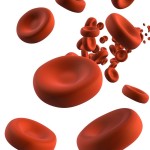Is there a significant risk of an echinacea/warfarin interaction
Echinacea has an effect on the “blood thinner” warfarin (Coumadin), but it’s not likely to be life threatening, according to researchers at the University of Sydney, in Australia.
First, the details.
- 12 healthy men with documented CYP2C9 and VKORC1 genotype received a single dose of warfarin by mouth.
- CYP2C9 is the most important drug-metabolizing enzyme.
- Mutations in VKORC1 cause warfarin resistance.
- The warfarin dose was taken alone or after 2 weeks of pre-treatment with echinacea.
- All participants took both treatments in random order — crossover design.
And, the results.
- The clearance (ability of the kidney to eliminate a drug) of (S)-warfarin was significantly higher during treatment with echinacea.
- (S)-warfarin is the form of warfarin that causes anticoagulation.
- But this did not lead to a clinically significant change in INR (a test of the ability of blood to clot).
The bottom line?
The authors concluded, “Echinacea significantly reduced plasma concentrations of S-warfarin. However,… echinacea [didn’t] significantly affect warfarin pharmacodynamics, platelet aggregation, or baseline clotting status in healthy subjects.”
Is there an interaction between echinacea and warfarin? Yes.
Is echinacea likely to change the normal response to warfarin? Not according to this study.
The findings can be explained because very little of the total amount of warfarin in the body is actually free circulating in blood and accessible by the kidneys. Most is bound to blood protein. Therefore, although it’s possible to increase elimination (clearance) of free circulating warfarin from blood through the kidneys, this represents a small portion of warfarin that’s in the entire body. It can rapidly be replaced to maintain the level of anticoagulation.
7/1/10 18:00 JR
